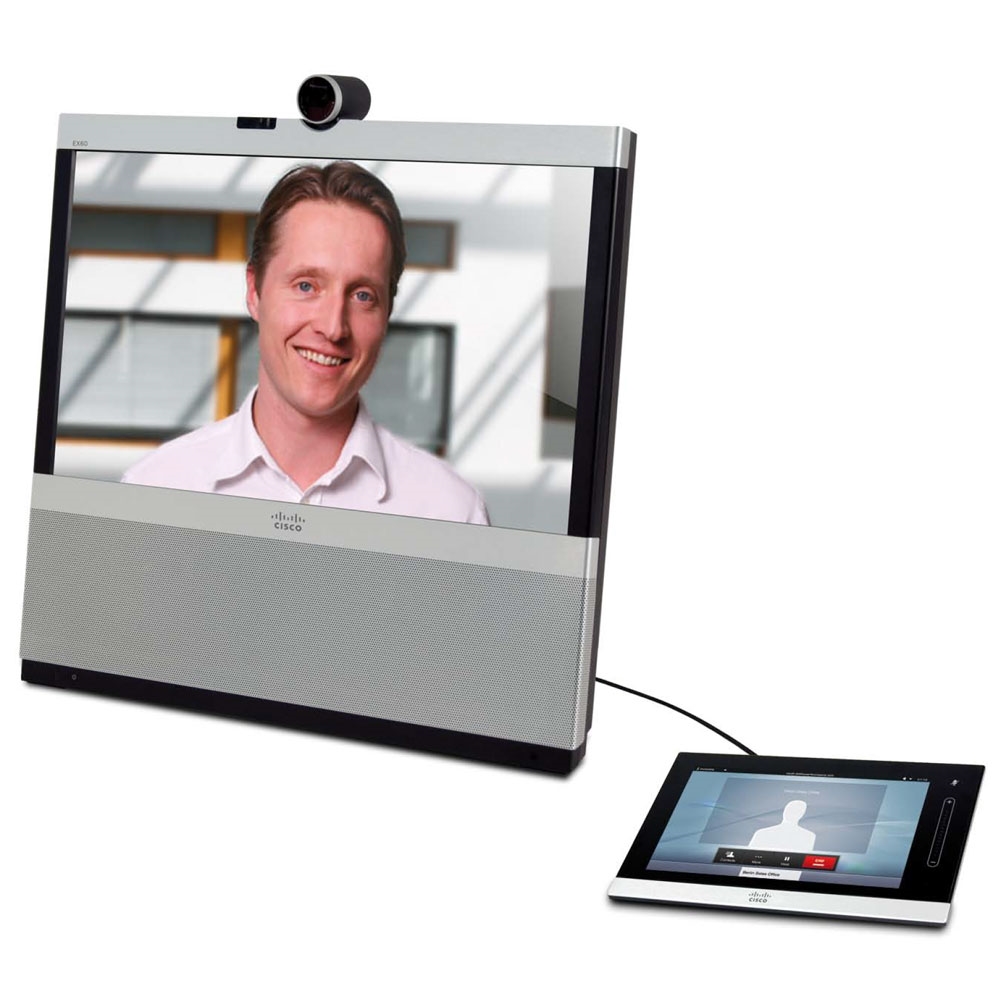I’m often approached by recruiters, and in general I’m always happy to listen to potential opportunities and have a chat. However more often than not I don’t take it any further unless the organisation has embraced remote working.
I freakin’ love remote-working and I’d find it incredibly hard to give up.
I’ll do everything I can to make it an option for more organisations and individuals.
Just as well I work in developing telepresence and collaboration tools!
As I rant on about this a lot I’ve written this post to explain why I’m a remote working fanatic.
The obvious personal benefits
There are obvious benefits to my personal life.
Firstly I have a huge amount of flexibility for how I structure my day. I fundamentally believe that Engineering and Programming are creative pursuits, and creativity suffers in a traditional rigid 9-to-5 commute-heavy grey office environment.
At home (or wherever I choose to work on a given day) I can be in my ideal workspace; I have everything setup in the way that’s most efficient for me.
Having complete control over my environment extends to distractions. We all know how painful it can be to have one’s concentration broken when working on a particularly difficult bug. When remote working that’s not an issue; if I want to blast out some Rammstein while work then I can, if I want some silence to concentrate without distractions then I can do that too.
I can use long periods of dead time, e.g. long compiles or test runs, to get some chores done, or indulge in some woodwork (my current hobby of the week). As a result I tend to work later than I would if I was in an office, but not at the cost of my overall personal time. Both myself and my employer benefit from this more efficient use of my time.
The lack of a commute also saves me a lot of time, money and effort, which I can then reinvest in my work and in my personal life.
In summary remote working allows me to work happier, harder, more efficiently with less personal and financial cost.

Remote working can change the world
Aside from the personal benefits, I genuinely believe that, if it was adopted widely, remote working can radically change the world for the betterment of everyone.
The strain on transport networks would be seriously reduced. Those remote working would no longer have to waste hours of their life packed onto overcrowded trains and roads. Those who still have to go to their place of work for practical reasons would have a much better time as the pressure on transport would be reduced, especially around peak times.
This obviously also has a massive benefit for the environment. Apart from reducing the need to commute, normalising distributed remote working also reduces the need for international travel for work.
There are tremendous benefits for family life too. Without the commute there’s more time to spend with loved ones, and the additional flexibility will help get more mothers back to work if that’s their wish.
Those with disabilities, physical or otherwise, will find it easier to enter and thrive in the job market.
Slashing our dependence on traditional office spaces will also help tackle the housing crisis by freeing up more land for homes.
Not having to live close to where you work will also encourage us to spread out a little more, so we don’t all have to pack into London, revitalising the north (and other areas) of the country and easing stratospheric housing prices and strain on services in London and the South.
Internationally it could help benefit developing countries by tackling brain drain by allowing skilled individuals from developing countries to live in and contribute to their home countries.
Finally, distributed working environments go further to break down the artificial walls that separate us. Working together across international boundaries helps us remember that we’re all in it together and that just because someone lives on a different continent doesn’t make them less important.
Benefits to the employers
There are huge benefits to the employer as well.
First and foremost your employees will be happier, healthier, more creative and more productive. Not only is this directly beneficial but it also makes you look like an innovative, forward-thinking, ethical company that puts its trust in its employees and values all the things I mention above.
Secondly, you’ll find it easier to hire and retain the best employees; the engineer with the ideal experience for your project lives in Germany - no problem! Your QA lead wants to move back to Portugal to be with her family - relax! That’s aside from the fact that you’ll be a lot more attractive as a place to work.
Thirdly, there are obvious savings to be made by no longer paying for the traditional office buildings and infrastructure.
Lastly, the improvements made when implementing home-working, such as better collaboration tools and better monitoring of employee performance, will bring tangible benefits elsewhere in your organisations.
But what about the downsides?
People hugely overstate the downsides of remote working. I’ll tackle a few here.
Not trusting people
Depressingly, the most common criticism I hear goes like this;
"If people are working from home, they'll slack off."
I’d respond like this: if the only way you know someone is working is because they’re sitting at their desk then you’ve already lost. Someone being physically present has literally no affect on how hard they’re working, especially in the age of facebook and smartphones. There are plenty of ways to slack off in an office undetected.
The inability to accurately gauge an employees’ performance suggests, more than anything else, poor management. However, even if this isn’t the case, how exactly is seeing bums on seats helping?
I’d say you’d get more productive, efficient and enthusiastic employees by creating a positive, trusting environment that gives feedback based on actual performance rather than how many hours someone’s been at their desk.
“Face-to-face is everything!”
Traditional, old fashioned, face-to-face communication still has its place, but almost all of those benefits can be kept in a remote working environment.
I’m lucky enough to have been working primarily from home now for ~5 years and I would say that, when it comes to communication and collaboration, remote working is almost always as good, if not better, than being co-located.
Telepresence technology is fantastic now. I have an EX60 on my desk and use it all the time. It’s actually out of date now, but still provides a fantastic experience.
When I’m in a call it’s like the person I’m talking to is in the room. The audio is crystal clear, and even when I get up and walk around I can still continue the conversation naturally.
People often think those useful “over-the-shoulder” conversations are compromised with remote working. I don’t believe this is the case. Firstly, much of that can be preserved with simple tools like Slack, or Spark, or even IRC. Secondly, my colleagues and I often have calls or conferences open for hours at a time, not for any particular conversation, but just for the social aspect or to have the company, and it works great.
Other collaboration tools such as shared terminals and virtual whiteboards often provide a better experience than the “real-world” equivalents. Buddy coding around one keyboard can be cramped and uncomfortable, but doing so on a video call, using tmux to share the terminal, is far superior.
With more innovations on the way, in particular around VR and augmented reality, I believe we’ll see more and more ways that technology will allow us to communicate and collaborate better than we ever could face to face. Indeed, the best innovations will come when we fully embrace technology’s ability to allow communication in a way that’s impossible with a physical analogue. This is something I’ve been experimenting with, developing VR-based virtual meeting spaces with the HTC Vive.

“But I like going into the office”
Some people like going into the office. They might find it difficult to work at home, or like the change of scenery, or would miss the social aspect.
But embracing remote working doesn’t have to mean you can’t have that stuff if you want it. Actually, it can make it even better!
If you don’t want to work at home, remote working still opens up so many options. Maybe you’d like to work from a café or an art gallery. How about a hackerspaces?
Or if you’d like a more traditional space, maybe find a shared office space (sometimes called a co-office) close to your home.
These suggestions obviously also address the social aspect, with shared offices and hackerspaces being especially useful as they also allow people excellent opportunities to network and learn; but outside of that the additional flexibility that comes with remote working makes it much easier to manage one’s social life outside of work (GASP). It’s easier to grab lunch with an old friend, or - now you don’t have to commute - join a club, take a class, go to the gym etc.
I would also add, despite having worked from home almost exclusively, I have a good social relationship with the colleagues in my team and we often meet up virtually in other ways (gaming) or going to the pub for realsies.
Your working environment can be more social, more interesting, and more efficient. The choice is yours.
Remote Working is the Future
As you can probably tell by this point, I really believe in home-working.
I won’t deny that, if you don’t already do it, there are challenges to overcome in order to transition, but they can be overcome with the technology and culture that exists today. The benefits will exceed any cost many times over.
I would like to ensure it continues to be an option for myself, but I also encourage everyone else to do whatever they can to embrace it themselves, and in their organisations.
I’d like to see the government do everything it can to encourage remote working:
- Investing in communication networks.
- Encourage remote working where possible for all tax-payer funded jobs.
- Incentivising companies to provide home-working options to employers.